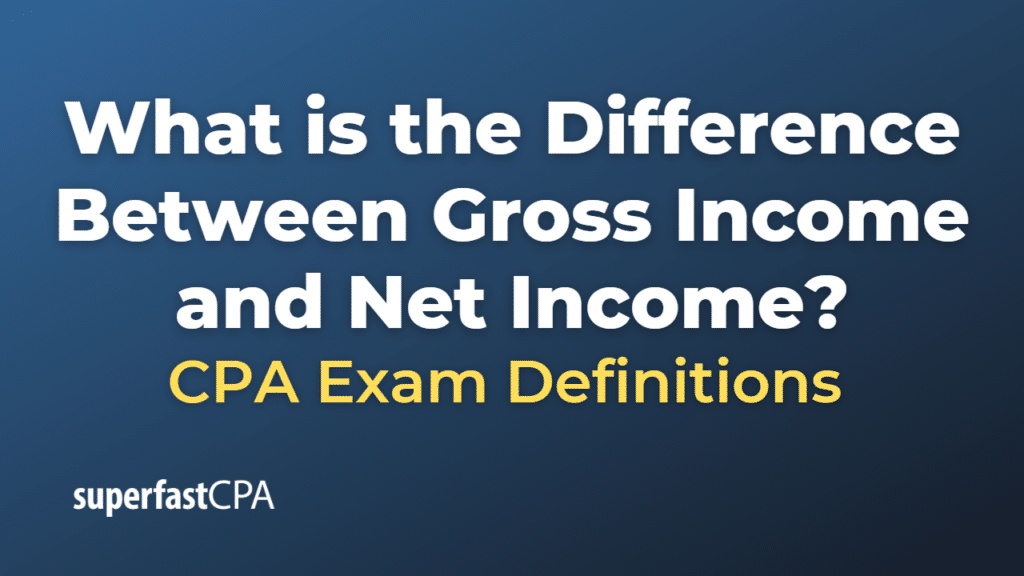Difference Between Gross Income and Net Income
Gross income and net income are two important concepts in accounting and finance that refer to the revenues and profits generated by a business or individual. Here’s how they’re different:
Gross Income
Gross income, also known as gross profit in a business context, is the total revenue earned by a business or individual before deducting any costs or expenses.
For a business, gross income is calculated by subtracting the cost of goods sold (COGS) from total revenue. COGS includes all the direct costs associated with producing a product or delivering a service, such as raw materials, direct labor costs, and direct factory overheads.
For an individual, gross income refers to the total income earned before any taxes or other deductions. It includes wages, salaries, bonuses, interest and dividend income, rental income, business income, and other types of income.
Net income, also known as net profit, is the amount left over after all costs and expenses have been deducted from gross income.
For a business, net income is calculated by subtracting all operating expenses (like rent, utilities, salaries, and advertising), interest, taxes, and other expenses from gross income.
For an individual, net income refers to the “take-home pay,” or the amount left over after taxes and other deductions (such as health insurance premiums, retirement contributions, and other withholdings) have been subtracted from gross income.
Key Differences
- What they represent: Gross income represents total revenues minus direct costs associated with producing those revenues, while net income represents what remains after all costs, taxes, and expenses have been deducted.
- Amount of income considered: Gross income typically is a larger amount as it only deducts the costs directly associated with producing a product or service, or, in the case of an individual, includes all income before deductions. Net income is typically smaller as it considers all costs, expenses, and deductions.
- Use in financial analysis: Both gross income and net income are key figures in financial analysis. Gross income can provide insights into a company’s core business efficiency, while net income gives a comprehensive view of the company’s overall profitability.
Example of the Difference Between Gross Income and Net Income
Suppose a company, let’s call it Alpha Corp, operates in the retail sector and has the following financial information for the year 2023:
- Total Revenue: $500,000
- Cost of Goods Sold (COGS): $200,000
- Operating Expenses (salaries, rent, utilities): $150,000
- Interest Expenses: $20,000
- Taxes: $30,000
First, we need to calculate the Gross Income:
Gross Income = Total Revenue – COGS
Gross Income = $500,000 – $200,000
Gross Income = $300,000
So, Alpha Corp’s Gross Income for the year 2023 is $300,000.
Next, we need to calculate the Net Income:
Net Income = Gross Income – Operating Expenses – Interest Expenses – Taxes
Net Income = $300,000 – $150,000 – $20,000 – $30,000
Net Income = $100,000
So, Alpha Corp’s Net Income for the year 2023 is $100,000.
This means that after accounting for the costs of producing the goods it sells (COGS), Alpha Corp has a Gross Income of $300,000. However, after further accounting for its operating expenses, interest, and taxes, the company’s Net Income (its actual profit) is $100,000.
These calculations and the resulting values allow business owners, investors, and other stakeholders to understand the profitability of the company both at its core operational level (Gross Income) and overall (Net Income).













